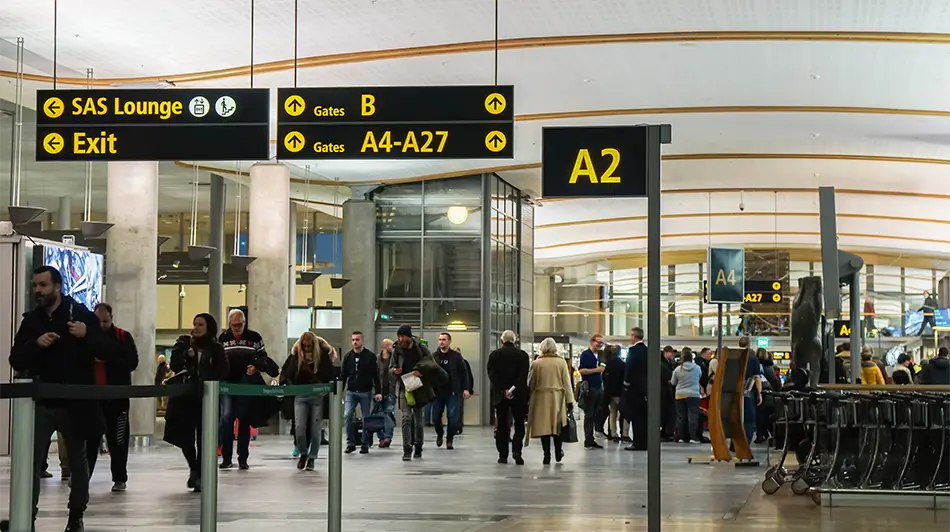Active floor vibration control for the transport sector
The sustainable route to visionary, high-performance transport environments
Transport hubs, including airport concourses and railway terminals, frequently make up some of the most iconic architectural feats around the world. These are the buildings where millions first meet a city: civic spaces where movement, culture and design converge. They demand clear, comfortable and inspiring design and always with an exacting eye on sustainability and future-proof performance.
For the world’s foremost design and engineering professionals, the transportation sector represents the pinnacle of architectural practice. Vaulted steel canopies that appear to float, columnless gridshells that span entire concourses, glass waterfalls and living forests bringing life to the heart of a terminal – architecture in the transport sector can be a seamless choreography of light, structure and movement.
When architectural ambition meets constant movement in the form of ground-bourne vibrations from traffic and footfall, managing floor vibration is critical. CALMFLOOR active mass dampers (AMD)
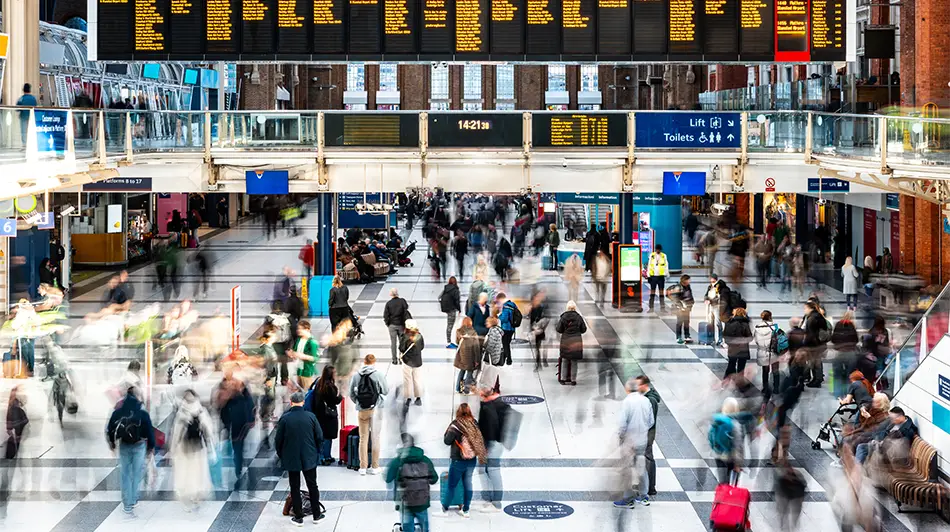
The challenge floor vibration presents in spaces built for constant movement
Open, transparent, column-free design defines today’s most exceptional stations and terminals. It also makes them more sensitive to floor vibration. Paired with intense ground-bourne vibration from transportation and footfall millions of commuters – this critically affects how transportation spaces feel, perform and last.
Uncontrolled floor vibration:
- Disturbs balance and increase cognitive load during wayfinding
- Creates visible shake in signage, lighting and public art
- Impairs acoustics and speech intelligibility in ticket halls
- Shortens the service life of escalators, lifts and conveyors
- Accelerates fatigue in fixings, finishes and structural joints
- Adds risk to heritage materials during adaptive reuse
When floor vibration takes hold, performance falls short of design intent. Comfort, clarity and confidence are lost. The calm within the architecture disappears.
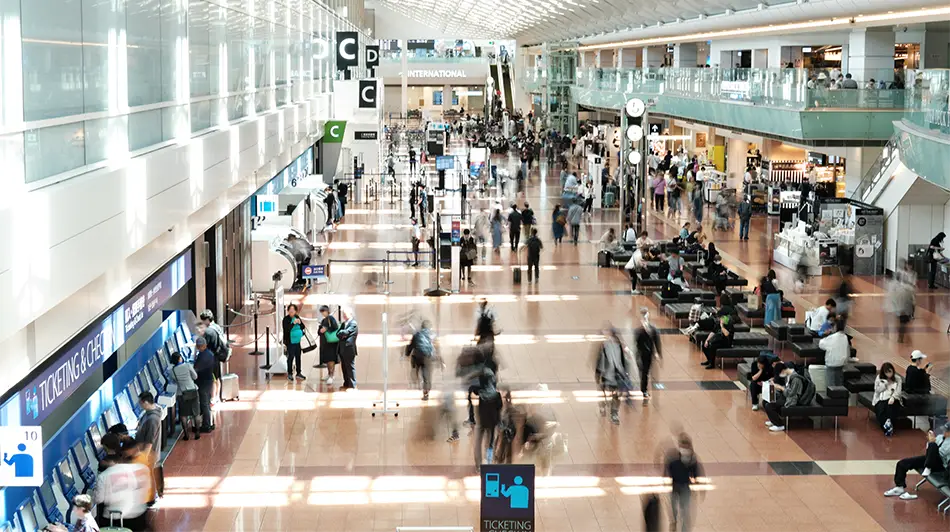
How CALMFLOOR AMD tackles floor vibration in the transport sector
Structural and architectural stability
Adaptive and responsive control
Human-centred and ergonomic design
Predictive maintenance and operational continuity
Environmental and sustainability value
How conventional damping derails creative freedom
Traditional floor vibration mitigation relies on static solutions, such as – adding mass, stiffness or separation. More concrete. More steel. More columns. Each option undermines the architectural intent it was meant to protect.
Adding mass to damp vibrations:
- Restricts openness and obstruct visual flow
- Increases embodied carbon and cost
- Reduces headroom and compromise spatial quality
- Disrupts live transportation operations during construction
- Creates fixed responses in structures that demand flexibility
Static fixes cannot adapt and, once applied, they cannot be undone. Modern transport architecture demands intelligent systems that respond in real time.
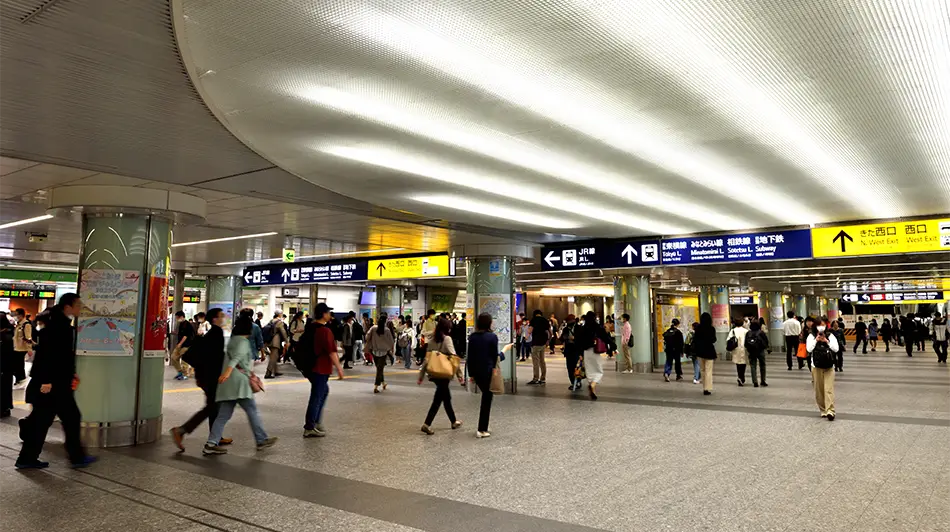
Floor vibration control for engineered transport hubs
Sophisticated architecture requires equally sophisticated floor vibration control. CALMFLOOR delivers dynamic floor stability without compromise.
CALMFLOOR AMDs deliver measurable, proven stability, – reducing floor vibration by up to 90%. Each compact 67kg (148 lbs) unit responds in real time, adapting to structural movement and activity while operating silently and without interruption.
Lightweight, energy-efficient, and digitally connected, CALMFLOOR brings precision control to the world’s busiest, most ambitious transport environments.
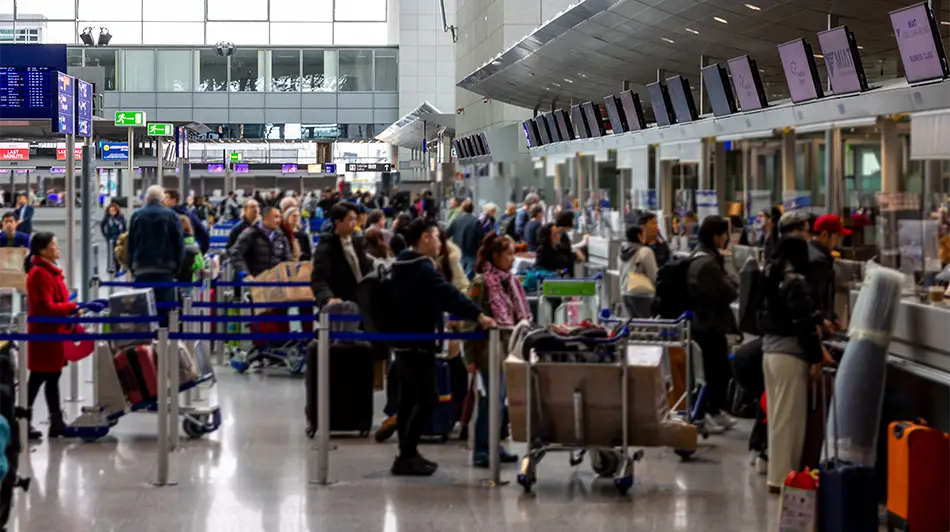
CALMFLOOR active mass damping is ideal for:

Airport concourses, terminals and departure lounges

Rail and metro stations (including underground platforms)

Internal passenger bridges, walkways and elevated connections

Bus and coach stations, intermodal hubs

Concourse retail areas and mezzanine floors

Transport-linked commercial or public zones
Controlled performance. Limitless design.
Transport facilities are no longer simply a gateway to the urban metropolis beyond. They’re destinations in their own right. From King’s Cross in London to Jewel Changi in Singapore, these civic spaces are symbols of cultural identity, engineering innovation and human connection.
For leading architectural studios, transportation represents the ultimate design challenge. Yet the qualities that make these structures extraordinary also make them vulnerable to floor vibration. Traditional added-mass methods restrict design freedom, forcing compromise where expression should thrive.
CALMFLOOR transforms floor vibration control from a constraint into endless possibility. By removing the need for thick slabs, additional columns or shortened spans, it frees architects to pursue transparency, openness and daring structural geometry without compromise.
Glass atriums, suspended mezzanines and long-span pedestrian bridges become viable even in vibration-sensitive, high-traffic settings. CALMFLOOR stabilises these forms dynamically, preserving serenity and function under constant movement.
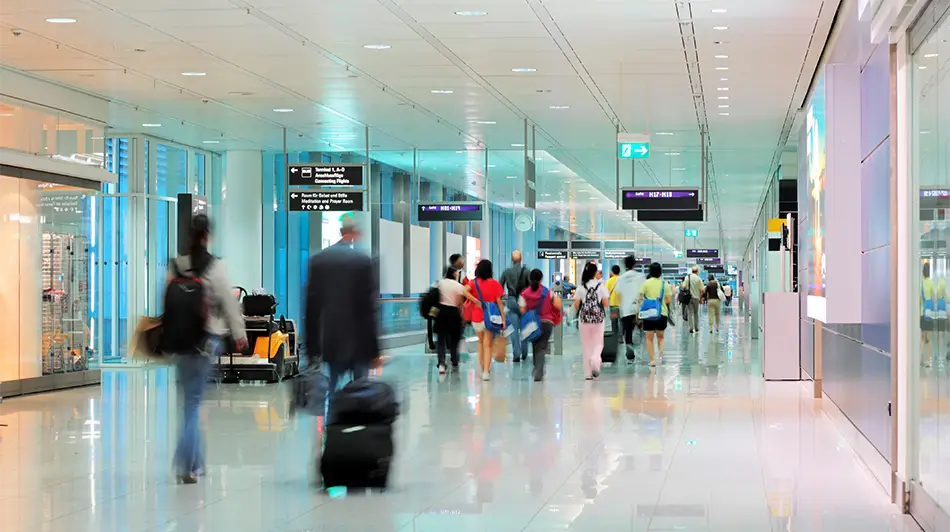
Why architects choose CALMFLOOR
CALMFLOOR also enables the adaptive reuse of heritage buildings, achieving modern floor vibration performance within protected structures, without altering their fabric. In every case, CALMFLOOR enables architectural freedom, operational reliability and the civic integrity that defines great transport architecture.
CALMFLOOR key features:
- Up to 90% vibration reduction for proven structural and occupant stability
- Lightweight 67 kg units fit seamlessly into existing slabs or beams
- Real-time performance monitoring through the CALMCONNECT smart platform
- Simulation-led design identifies floor vibration hotspots early in the project
- Low-energy, low-carbon footprint aligned with Net Zero targets
- Preserves design intent enabling open spans, clear sightlines and light material
- End-to-end partnership providing from installation to continual optimisation
